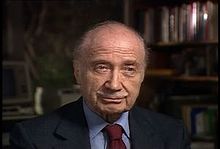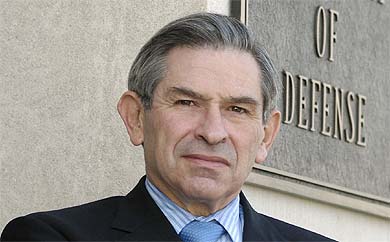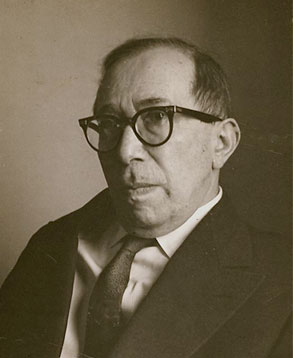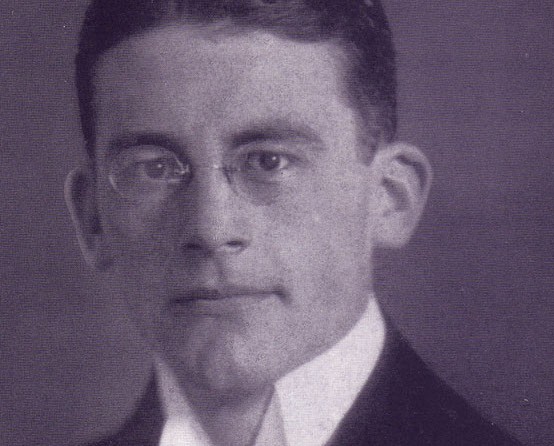The Destruction Of The Middle East And The Nazi Roots Of The Neoconservatives
By Theodore Shoebat and Walid Shoebat
With the chaos that has torn apart Iraq and Syria, we should ask ourselves about the people who pushed for the foreign policy that sparked the violent conflagration and their idealogical roots. The exhortation for the invasion of Iraq can be traced back to the Neoconservative movement and its more obscure arm, Team B.
Team B was a group of think tankers organized thanks to people like Zbigniew Brzezinski and consisted of Neoconservative Cold Warriors such as Paul Wolfowitz, Leo Cherne, Paul Nitze, Richard Pipes, Daniel O. Graham, Seymour Weiss and Richard Perle. Their jobs were to exaggerate threats about the Soviet Union to justify United States foreign policy. These were the very people who justified arming the Afghan Mujahideen and expressed support for Chechen insurgents.
The idea of Team B was conceived by Albert Wohlstetter, a very influential nuclear strategist during the Cold War. From the 1960s to the 1980s, Wohlstetter chaired the dissertation committees of the major Neoconservative figures such as Efraim Inbar, Paul Wolfowitz,and Zalmay Khalilzad. Both Wolfowitz and Khalilzad were heavily influential in the removal of Saddam Hussein.
In the fall of 2000, Dick Cheney and Donald Rumsfeld backed a study entitled, Rebuilding America’s Defenses, which was created by the lobbying group, PNAC (Project for the New American Century). The study called for the United States to have the capacity to “win multiple simultaneous large-scale wars and also to be able to respond to unanticipated contingencies in regions where it does not maintain forward-based forces.” The fact that this same PNAC group, back in 1998, called for president Clinton “to turn your Administration’s attention to implementing a strategy for removing Saddam’s regime from power”, is an indication as to what the motive of the authors of this document was when they exhorted for the US to have the capacity to “win multiple simultaneous large-scale wars”. The destabilization of Iraq was in their minds. Wolfowitz was the signer of the 1998 letter from PNAC to the Clinton administration.
There was another letter, also sent to the Clinton administration in 1998, but this time from the Committee of Peace and Security in the Gulf, which as well called for regime change in Iraq. While this letter was, technically, from a different organization, many of the signers of the letter were from PNAC — Paul Wolfowitz being one of them — and all of the signers were associated with each other within the same Neoconservative power circle. The organization was set up by Richard Perle, another leading member of PNAC, which really goes to show these organizations are just shells for the same network and for the same agenda. Richard Perle was a pupil under Albert Wohlstetter, the intellectual founder of Team B.
Another signer of this letter was Bernard Lewis, who told Dick Cheney: “I believe that one of the things you’ve got to do with Arabs is hit them between the eyes with a big stick. They respect power.” Lewis was also a lobbyist for the Turks as he would also write to convince people that the Armenian Genocide done by the Ottoman Empire was not done by the Ottoman Empire:
“The meaning of genocide is the planned destruction of a religious and ethnic group, as far as it is known to me, there is no evidence for that in the case of the Armenians. […] There is no evidence of a decision to massacre. On the contrary, there is considerable evidence of attempts to prevent it, which were not very successful. Yes there were tremendous massacres, the numbers are very uncertain but a million may well be likely… [and] the issue is not whether the massacres happened or not, but rather if these massacres were as a result of a deliberate preconceived decision of the Turkish government… there is no evidence for such a decision.”
Lewis uses the fact that the extermination order of the Armenians was never written down to try to somehow prove that the Young Turk government did not want a genocide, as though so many people can be butchered without the connivence of people in the upper echelons of power. Lewis wrote like a typical Holocaust denier who says that there was no direct order from the highest Nazi leadership to exterminate the Jews and other people. Rather, in the words of historian Eugene Rogan, “the Young Turks issued secret orders for the mass murder of Armenian deportees. The extermination orders were not written down but were communicated orally to provincial governors either by their author, CUP Central Committee member Dr. Bahaeddin Sakir, or by other CUP officials. Any provincial governor who asked for written confirmation of the orders or otherwise opposed the mass murder of unarmed civilians faced dismissal and even assassination. When one district governor in Diyarbakir Province demanded written notice before carrying out the massacre of Armenians from his district, he was removed from office, summoned to Diyarbakir, and murdered en route.” (Rogan, The Fall of the Ottomans, ch. 7, pp. 172-173)
It is quite disturbing that a Jew, Bernard Lewis, would partake in the denial of the holocaust that inspired the German Holocaust. What is interesting is that a person who denied the Armenian Genocide also backed the Iraq War which really was a catalyst to the current rise of Turkey that we are currently witnessing. The removal of Saddam and the subsequent chaos of Iraq had a ripple effect that spread destabilization to Syria. The conflagration of Iraq and Syria gave opportunity to Turkey to expand into these regions all under the guise of stability. The Neoconservative plot to bring the Iraq War into fruition created the conditions in which Turkey is now rising again as a global superpower. A person who denied the Armenian Genocide collaborated to orchestrate another Armenian genocide.
Strengthening Turkey while weakening Syria was, in fact, the Neoconservative plan all along. For example, in 1996 Richard Perle and his policy study group, the Institute for Advanced Strategic and Political Studies’ “Study Group on a New Israeli Strategy Toward 2000”, produced a plan for the Netanyahu administration entitled, “A Clean Break: A New Strategy for Securing the Realm”. The plan exhorted for Israel to “Work closely with Turkey and Jordan to contain, destabilize, and roll-back some of its most dangerous threats.” It went on to state:
“Israel can shape its strategic environment, in cooperation with Turkey and Jordan, by weakening, containing, and even rolling back Syria. This effort can focus on removing Saddam Hussein from power in Iraq — an important Israeli strategic objective in its own right — as a means of foiling Syria’s regional ambitions.
…
Most important, it is understandable that Israel has an interest supporting diplomatically, militarily and operationally Turkey’s and Jordan’s actions against Syria, such as securing tribal alliances with Arab tribes that cross into Syrian territory and are hostile to the Syrian ruling elite.”
Both Richard Perle’s and Bernard Lewis’ acting as acolytes for Turkey is part of a long history of Jews having a deep collaboration with the Turkish government. In the words of Daniel Pipes (son of Richard Pipes):
“And Ankara relies not just on Israelis; to make its case, it also counts on American Jews such as Morton Abramowitz, Douglas Feith, Alan Makovsky, Richard Perle, and Harold Rhode, and on institutions such as the American Israel Public Affairs Committee and the Jewish Institute for National Security Affairs.”
Backing Turkey as some sort of a pillar for national security is a part of that 5 minutes to midnight mentality that Albert Wohlstetter instilled in his pupils. He had a ring of Neoconservative lobbyists such as Richard Perle, Zalmay Khalilzad, and Paul Wolfowitz, who followed this way of thinking. With this mentality any perceived threat could be considered a national emergency needing a military solution (kind of like Trump and his administration on the border).
There is certainly a very destructive disposition that has riddled political discourse, and that is a knee-jerk reaction that favors a militarist solution to any perceived threat, or the backing of a regime or the government of countries that have recent genocidal policies. For example, these Neoconservatives have no issue giving tremendous power to Turkey, a country that orchestrated the Armenian Genocide and butchered millions (not just Armenians, but Greeks and Assyrians as well), enabling them to advance into Syria all in the name of ‘national security’ and ‘American interests.’ These same conspirators also have no issue destroying a country, as long as it is under the justification of ‘American interests.’ For example, David Wurmser (who unironically was a senior advisor to John Bolton) wrote a book in 1999 that pushed for military action against Iraq and said that a good effect of bringing down Saddam would be the destabilization of Syria:
“A collapse in either Syria or Iraq would affect the other profoundly. Ideologically, a failure of Baathism in one implicitly indicts the regime of the other as well. Practically, cross-border tribal, ethnic, sectarian, familial, and clan alliances make it likely that events in Iraq would spread uncontrollably into Syria, and vice versa. Both Saddam and Assad recognize the intensely fractured nature of their nations’ populaces, conducive to treachery and betrayal.” (p. 59. Bold mine)
Wurmser wanted Iraq to be destabilized (which is exactly what happened) so that it could have a ripple effect and boil over into Syria. It wasn’t enough for Iraq to be ruined and chaotic, Syria as well needed to be cut asunder. Wurmser himself knew that the Neoconservative plan for the Middle East would bring about suffering to the peoples of Iraq and Syria, and yet he coldly passed them by as not the concerns of the United States:
“The grim prospects of eventual collapse in either Syria or Iraq, tragic as they are for their inhabitants, are not the immediate concern of others in the region or in the United States.”
The sufferings and the slaughter of the common people in these regions means nothing to the Darwinists of the conspirators within the United States. Principle is thrown out the window and elevated as supreme is the advancements of ‘national interests.’ Just look at what the US has been doing in Yemen, not caring about the slaughter and mass deaths by starvations because of the war, but only fixated on arms deals with Saudi Arabia in the billions of dollars. “I don’t like the concept of stopping an investment of $110 billion into the United States,” these are the words of Trump regarding the arms deals with Saudi, exhibiting the reality that the US support for the Arabians is about the national religion of the United States, which has the greenback as their god and the war mongers as their prophets.
This religion is the religion of power and possess the soul of its followers with the spirit of the pharisee who, seeing the poor man before him with his flesh lacerated by the whip of despotic policy, screams, “Crucify him!” They are like that mob that wanted Christ dead. They did not care that He was severely scourged. This did not satisfy their bloodlust; He needed to be nailed to a cross. This is the spirt of the pharisee: always pushing for the most violent reactions as solutions to either political exaggerations or made up problems. We see this same favor to the extreme in famous Right-wing radio host, Mark Levin, who as a response to North Korea said that the US should give Japan nuclear weapons:
What Wurmser was calling for was exactly what the racist and eugenist ideologue, Samuel Huntington, was calling for when he wrote in 1993 that the US needs “to exploit differences and conflicts among Confucian and Islamic states”. It is not surprising that Huntington was very close with Zbigniew Brzezinski, one of the major masterminds behind the formation of Team B.
And it was this very Huntington who would later advocate for eugenists like Edward Ross and Lothrop Stoddard. Huntington, in writing for Anglo-Saxon American identitarianism, wrote: “Immigration restrictions were furthered by the ideology of ‘Anglo-Saxonism’ articulated by writers and social scientists as Edward Ross, Madison Grant, Josiah Strong, and Lothrop Stoddard.” All of the names mentioned here are those of eugenists who upheld the superiority of the Northern European race. Stoddard, for example, said: “The cardinal point in our immigration policy should, therefore, be to allow no further diminution of the North European element in America’s racial make-up.”
To orchestrate destruction for a country, not caring about the suffering of the inhabitants, nor how many die, denotes an absence of principle and a Darwinist mentality. One of the most famous of the Neoconservatives, Elliot Abrams (who was appointed by Trump to oversee American interests in Venezuela) is absolutely callous towards the fact that US policy abetted the slaughter of tens of thousands of people in Central America. Obviously these aren’t people who follow principle, but a will to power for the cause of national domination, a ‘might makes right’ attitude that flows from Darwinism.
It is not surprising that one of the philosophers who was quite influential for numerous of the Neoconservative movement was Leo Strauss, a German Jewish conservative thinker who taught at the New School for Social Research in New York (1939–1949) and the University of Chicago (1949–1958). As one report shows: “Wohlstetter, himself a protege of the Machiavellian academic Leo Strauss, is often considered the “intellectual godfather” of modern neoconservatism.”
Although Strauss called Nazism a “shabby abomination,” he still loved fascist ideology. He believed that while Nazism was an abomination, fascism was the only solution to Nazism. While subscribing to fascism, Strauss also affirmed that he would suffer the Nazi ghetto before bowing down to any cross. He said all of this in a letter to fellow Jewish philosopher Karl Loewith:
“the fact that the new right-wing Germany [the Third Reich] does not tolerate us says nothing against the principles of the right. To the contrary: only from the principles of the right, that is from fascist, authoritarian and imperial principles, is it possible with seemliness, that is, without resort to the ludicrous and despicable appeal to the droits imprescriptibles de l’homme [inalienable rights of man] to protest against the shabby abomination. …There is no reason to crawl to the cross, neither to the cross of liberalism, as long as somewhere in the world there is a glimmer of the spark of the Roman thought. And even then: rather than any cross, I’ll take the ghetto.”
This statement flies in the face of all those who for years have called Nazism “Left-wing.” Here we have one of the most influential thinkers for the American Right — and a supporter of fascism — explicitly calling Nazism Right-wing.
Strauss never fled Nazi Germany as a refuge to the United States, rather he left Nazi Germany in 1937 because he got a job opportunity in Paris thanks to his friend the major Nazi Carl Schmitt, “the crown jurist of the Third Reich” who to this day is revered by numerous Right-wing writers and activists, such as those of the Western European New Right and Identitarians. In fact, Carl Schmitt was one of the first important German academics to speak highly of Strauss’ work. Schmitt helped Strauss get a position within the Paris Central Office of the Rockefeller Foundation, as we read in a letter by Strauss to Schmitt:
“The Secretarial office of the Rockefeller Foundation has now informed me that the Foundation’s German Committee has recommended me to the Paris Central Office in the way I had wished. The final confirmation is expected in mid-May. Given that this confirmation has, as I hear, yet to be withheld in any instance, I can now presumably count on being sent to Paris in the autumn of this year. I cannot let the occasion of this communication pass without assuring you once again of my most heartfelt thanks for your support of my application.”
This letter was written in 1932, just one year before Schmitt joined the Nazi Party on May 1st, 1933. In July of 1933 (just two months after Schmitt joined the Nazi Party), Strauss wrote another letter to Schmitt, thanking him again for helping him get a position with the Rockefeller Foundation:
“First [I] would like to inform you that the Rockefeller Fellowship, which I essentially owe to your evaluation of the first pan (submitted to you) of my studies on Hobbes, has now been awarded to me for a second year. I intend to study here for another semester and to go to England in the early part of next year.”
Schmitt connected him with the Rockefeller Foundation, and thanks to this Strauss left Germany for Paris in 1932 and then later went to England.
The fact that Schmitt was well connected with the Rockefeller Foundation is not really all that shocking, given that it was a major acolyte for eugenics.
And it wasn’t as if Strauss did not understand or comprehend Schmitt’s ideological pursuing towards evil. The opinions that Strauss had for Schmitt’s book, Concept of the Political, were the only opinions that Strauss took seriously.
Strauss was the only person who Schmitt publicly called an “important philosopher.” In the words of one commentator, “we need hardly evoke the judgement that Schmitt repeatedly expressed in conversations, that he knew of no one who understood him better than Strauss did with respect to the primary intention of the Concept of the Political.” In the 1933 edition of the Concept of the Political, Schmitt included the questions that Strauss had for him, as well as his replies to Strauss, but he never mentions Strauss’ name. In fact, it was only Strauss’ critique that Schmitt would include in his work decades later (Schmitt died in 1985).
Leo Strauss devoted detailed studies to only three philosophers: Alexander Kojeve, Martin Heidegger and Carl Schmit; the last two were both major Nazi ideologues.
Leo Strauss was friends with Carl Schmitt and the two influenced each other. One thing to keep in mind is that Schmitt was not some low ranking member of the Nazi Party, but a major one who played a huge role in configuring the political structure of the Third Reich. In early 1933, Herman Goring appointed Schmitt to the Prussian State Council. He was also the president of the Union of National Socialist Jurists, editor-in-chief of the German Jurists’ Journal. To Schmitt the state was everything, and politics was merely the act of one group severing itself and making war against its enemies. For Schmitt the enemy is one by whom “the political is robbed, with special pathos, of all independence and is subordinated to the norms and ‘orders’ of morals and law”. This enemy, in Schmitt’s eyes, was the liberal in whose control “political viewpoints were robbed, with special pathos, of all validity and subordinated to the normative prescription and ‘orders’ of morals, law, and economics”.
So for Schmitt the liberal was the enemy because he made “the political” order of his ideology submit to moral law. In other words, Schmitt did not want any law or morality to impede the will to power of his political order, or in his case, the Third Reich. In his philosophy Schmitt defines politics as groups being totally fixated on their own self-interest, severing themselves from other groups and labeling them as enemy or friend. The “normal state” of a modern society works to prevent these groups from killing one another; but once this is no longer possible, civil war is then the answer. To quote Schmitt:
“The achievement of a normal state consists in relativizing the opposed groupings within it and preventing the ultimate consequence thereof, war. If a state is no longer capable of that achievement, the center of gravity of politics shifts from foreign to domestic affairs. The opposition within domestic politics then become the authoritative groupings into friends and enemies, and that plainly means latent or acute civil war.”
Thus, for Schmitt, perpetual war between groups is the ultimate state of “the political”. The enemy, in the words of this leading Nazi juror, is “plainly the other, the alien.” In other words, the foreigner or the non-German, or the political dissident. This way of thinking is gradually intensifying in our own times. Strauss continued to write to Schmitt, even though he knew that Schmitt was a Nazi. Schmitt eventually stopped responding to Strauss’ letters for some unknown reason. But it was affirmed to Strauss that the reasons for his silence had nothing to do with him being Jewish. On December 6th, 1933, it was told to Strauss by fellow Jewish philosopher Karl Lowith:
“Dr. [Werner] Becker [a student of Schmitt’s], to whom I spoke today, regards it as out of the question that Schmitt — despite his anti-Semitism in principle — has not answered you for that reason … but he has an enormous amount of work to do as Staatsrat [council for the Reich in Prussia] and Becker says that Schmitt also would know of no English Hobbes scholar to whom one could be recommended.”
This letter was written on December 6th, 1933. Schmitt joined the Nazi Party in May of 1933. So Strauss was still writing to and desiring to communicate with Schmitt even though he was a Nazi, and not just any Nazi, but one who was the president of the “Union of National-Socialist Jurists” and a high ranking politician of the Reich in Prussia. In July of 1933, Strauss solicited to Schmitt his editing skills:
“You related to me on one occasion that Professor Friedrich (of Harvard University) had informed you of a plan to prepare a critical edition of the works of Hobbes. I would be very interested in collaborating on that edition.”
Schmitt continued to be influenced by Strauss but never acknowledged Strauss publicly. Strauss knew exactly why: because he was a Nazi and knew that he could never publicly acknowledge a Jew. In 1935, Strauss wrote to EIJ Rosenthal, saying that Schmitt “had become a National Socialist” and that he could “adduce the mitigating circumstance that after all he could not possibly allow himself to acknowledge his dependence on a Jew.” These last words should grab our focus; for they show just how much of an influence a Right-wing Jew had on one of the top orchestrators of the Nazi regime.
Now you can say that Strauss was not a Nazi, and it is true that he was not a member of the German National Socialist Party. But nonetheless, it cannot be denied that Strauss was very enthusiastic about three of the biggest influencers of the Nazi cult: Nietzsche, Heidegger and Schmitt. In the words of Steinberg:
“Recent biographies have revealed the depth of Heidegger’s enthusiasm for Hitler and Nazism, while he served as the Chancellor of Freiburg University, throughout the epoch of National Socialism, and was the leader of a Nietzschean revival. Carl Schmitt, the leading Nazi philosopher of law, was personally responsible, in 1934, for arranging a Rockefeller Foundation scholarship for Strauss, which enabled him to leave Germany, to study in England and France, before coming to the United States to teach at the New School for Social Research, and then, the University of Chicago. Strauss, in his long academic career, never abandoned his fealty to Nietzsche, Heidegger, and Schmitt.”
What is also worthy of our attention when it comes to Strauss are his discourses regarding eugenics. In a transcript of one of his dialogues, Strauss speaks of Socrates’ and Plato’s ideal republic in which the philosopher-king sees to it that the genetic qualities are the best by controlling the marriages between citizens. As we read from Strauss: “Complete knowledge, the knowledge which the philosophers who are to rule would have, would require or include such knowledge as that of the principle of eugenics.” Nowhere does Strauss condemn eugenics. He was born in 1899 and died in 1973. He would have definitely known about the eugenist policies of both Europe and North America, and yet we do not find any condemnation or objections from Strauss about eugenics. Rather, we see Strauss speaking of how the ideal philosopher-king would have to have knowledge of eugenics. Strauss goes on to say:
“This principle [of eugenics], however, would have to enable you really to predict. It would not be enough to know a few laws in this area. You would have to know precisely how the next baby is going to turn out. You would not be able to plan, for example, on the basis of the Mendelian laws. They afford you some idea of what is going to happen, but they leave too many questions unanswered. Thus they are of no great practical use. To state it differently, these guardians would need the formula which would guarantee perfect control over the next generation of offspring. This formula is not known.”
While some may read this and argue that Strauss is here going against eugenics by saying that we can never predict if a child will be born with ideal qualities, this is in no way a moral objection against eugenics. Rather it is merely pointing out that eugenics would necessitate a perfect prediction system. Notice the words of Strauss: “You would have to know precisely how the next baby is going to turn out … these guardians would need the formula which would guarantee perfect control over the next generation of offspring.” The fact that he says, “You would have to know precisely” and that these philosopher-kings “would need the formula” for making sure 100% that a child will come out a certain way, signifies that he is not condemning eugenics, but simply pointing out what is missing in eugenics. Strauss said these words in 1957, before the devising of CRISPR and the advanced genetic engineering that we have today. In other words, if there was an efficient system of genetically engineering an ideal society, then Strauss would have no issue.
Strauss also saw Islam and Judaism as philosophically superior to Christianity:
For the Christian, the sacred doctrine is revealed theology; for the Jew and the Muslim, the sacred doctrine is, at least primarily the legal interpretation of the Divine Law (talmud or fiqh). The sacred doctrine in the latter sense has, to say the least, much less in common with philosophy than the sacred doctrine in the former sense. It is ultimately for this reason that the status of philosophy was, as a matter of principle, much more precarious in Judaism and in Islam than in Christianity: Christianity philosophy became an integral part of the officially recognized and even required training of the student of the sacred doctrine….The precarious position of philosophy in the Islamic-Jewish world guaranteed its private character and therewith its inner-freedom from supervision. The status of philosophy in the Islamic-Jewish world resembled in this respect its status in classical Greece.
That Strauss held to fascism and continued his collaboration with Nazism, reflects the spirit of his influence on the Neoconservatives and their remorseless view on their destructive policies imposed on the Middle East.
Taking into account that Strauss said these things regarding eugenics; the fact that Strauss strived to maintain his friendship with a top Nazi, Carl Schmitt, the fact that he expressed support for fascism in a private letter, and the fact that he saw Islam and Judaism as philosophically superior to Christianity, shows us enough red flags surrounding Strauss. The fact that the Neoconservatives idolize Strauss gives us an idea as to the dark ideological underpinnings of the Neoconservative movement.















Comments are closed.